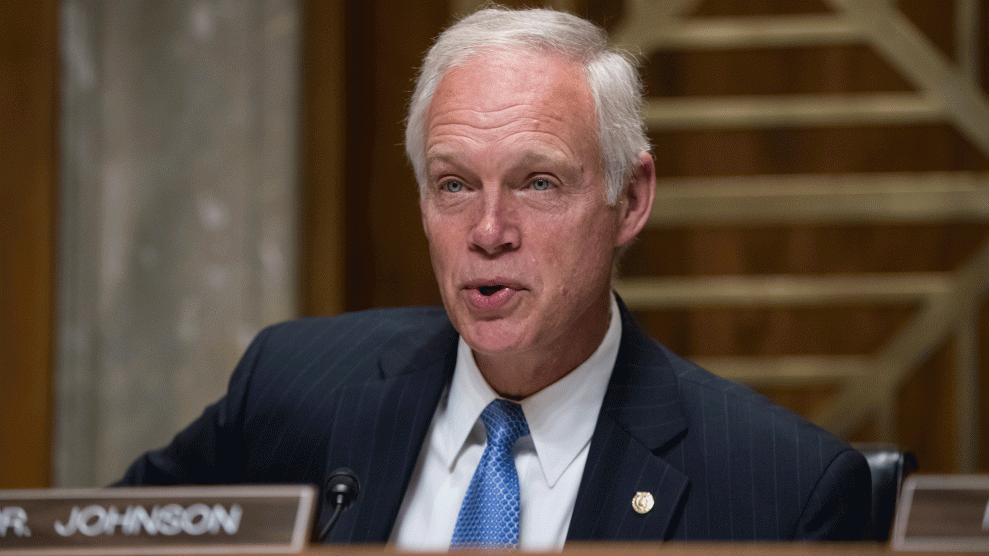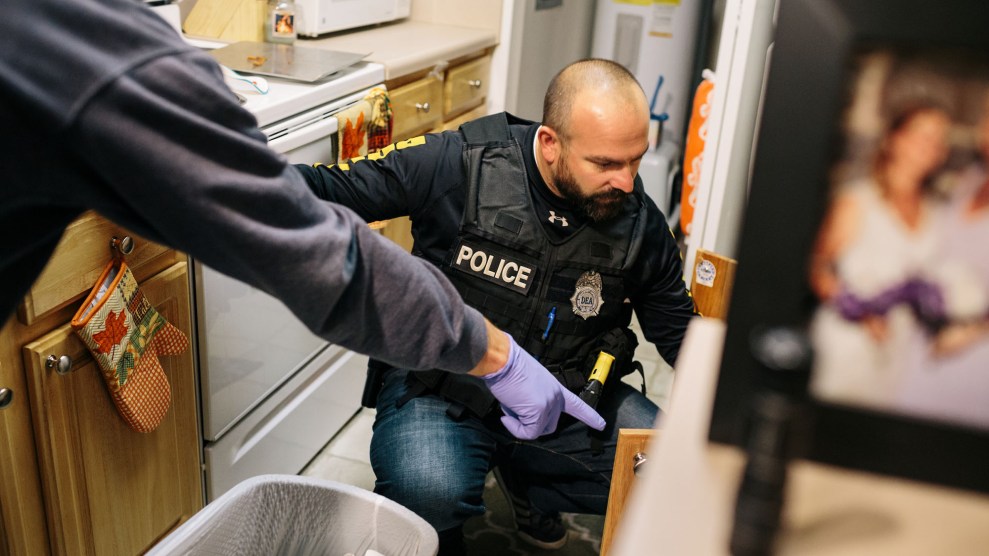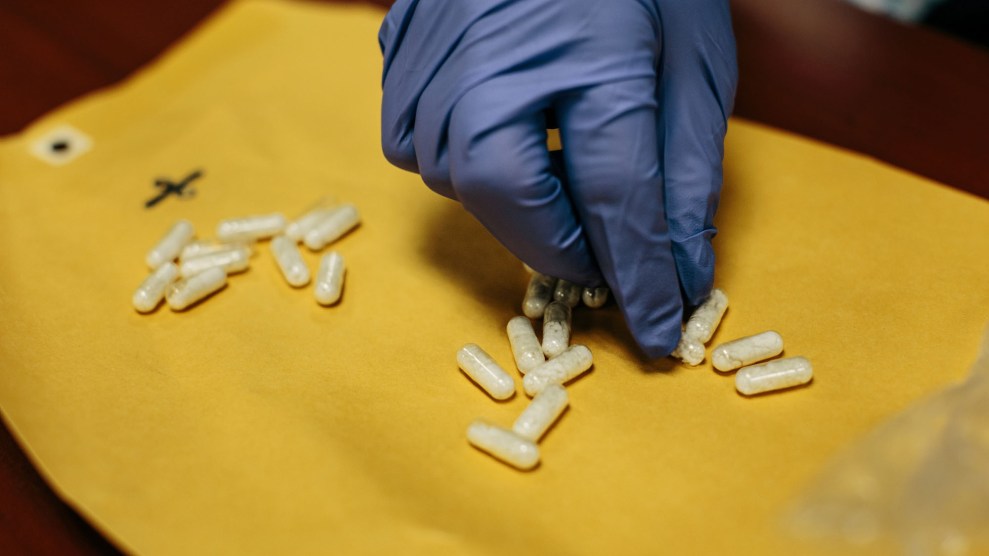
Sen. Ron Johnson (R-Wisc.)J. Scott Applewhite/AP
Republicans seem to have found a new culprit to blame for the opioid epidemic: Medicaid.
On Wednesday, the Senate Committee on Homeland Security and Governmental Affairs, led by Sen. Ron Johnson (R-Wisc.), held a hearing on the supposed connection between Medicaid and America’s drug crisis. Johnson’s thesis, summed up in a report his team published today, is that Medicaid recipients are taking advantage of their free healthcare by selling their pain pills. The evidence, he argues, is the fact that states that expanded Medicaid have higher overdose rates—and his finding that 1,072 Americans have been charged or convicted of improperly using Medicaid to get pain pills since 2010.
The theory, which has been making its way around the conservative blogosphere for months, adds to the Republican critique of Medicaid: Free healthcare for the poor is not only disincentivizing Americans from working by providing free healthcare—it’s enabling those on it to make money by diverting their pills. “Every time a hard working American pays their taxes, they are inadvertently funding drug dealers with a new supply of high powered opioids that are poisoning our schools and our streets,” testified Otto Shalk, a prosecuting attorney from Indiana. “With the increased amount of the impoverished having access to medical care, there is a greater likelihood that those who are impoverished are going to see the opportunity for turning a profit, albeit illegal, on the street.”
The thing is, the argument doesn’t stand up to scrutiny. It’s true that overdose rates are higher in the 31 states that expanded Medicaid under the Affordable Care Act, and it’s true that opioid abuse is more common among poor Americans. But Medicaid expansion under the Affordable Care Act took place in 2014—nearly twenty years after overdose rates started creeping up, and three years after the Centers for Disease Control and Prevention called the crisis an epidemic. (Check out our timeline of the epidemic for more details.)
Plus, today’s opioid epidemic is fueled by illicit fentanyl and heroin, which kill far more Americans than prescription opioids. There’s ample evidence to suggest that these illicit drug markets sprang up in the same places where opioids were overprescribed, and many of these states would later expand Medicaid. Today’s epidemic started with overzealous pharmaceutical marketing and liberal prescribing, not access to healthcare, noted Andrew Kolodny, co-director of opioid policy research at Brandeis University, in his testimony. As he said, “Opioid overdoses have been increasing in people with all types of insurance and in people from all economic groups, from rich to poor.”
The irony is that Medicaid expansion under the Affordable Care Act gave millions of Americans access to addiction treatment coverage—which researchers on the right and left agree is key to solving the drug crisis. (Brandi, a recovering drug user who attributes her progress to her newfound addiction treatment coverage, is one example.) But recent Republican legislation—like the repeal of the individual mandate under recently enacted tax plan, or the proposed Medicaid work requirements—could cripple that progress. As Keith Humphreys, a Stanford psychiatry professor and Obama policy advisor, told me last year, Obamacare was “designed to be very broad, but at the same time we knew that if there was anything that this would help a lot for, it’s addiction.”









